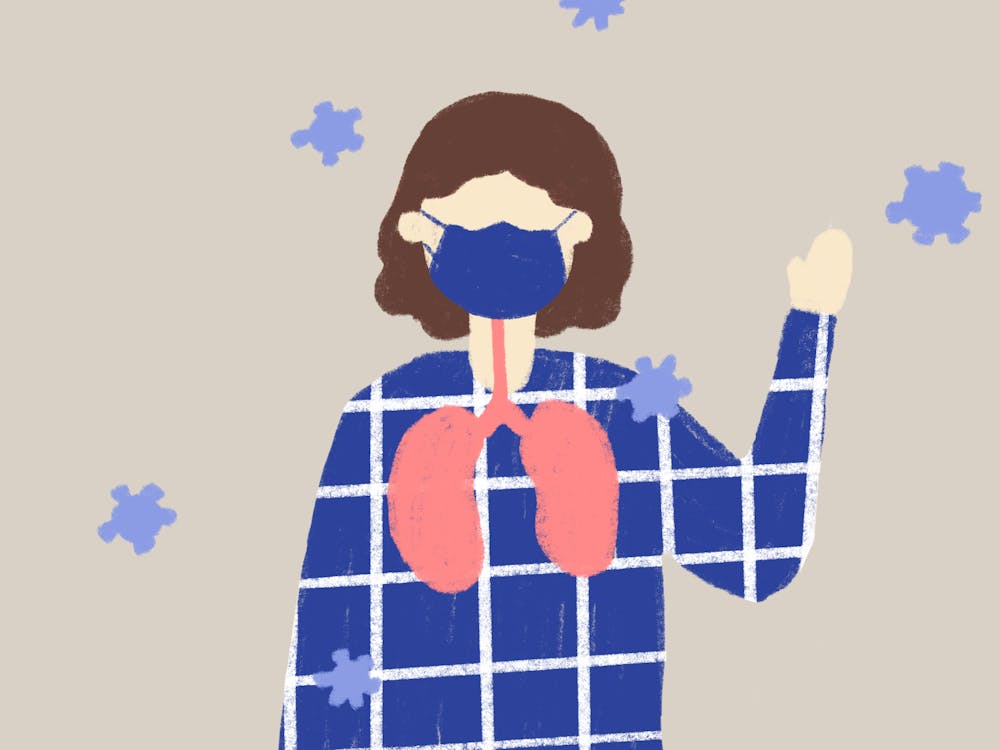
For students with underlying health conditions, deciding to return to campus could mean risking their lives.
Students with health conditions or medications that create a higher risk of severe illness from the coronavirus face the difficult decision of whether to return to campus in the fall. Many cite concerns about a potential COVID-19 outbreak on campus this fall and predict that students may disregard the social distancing guidelines outlined in Penn’s Student Campus Compact.
As some immunocompromised students prepare to return to campus despite the health risks posed by the ongoing pandemic, they worry that their peers may not take the threat of the virus seriously — potentially endangering their lives.
Rising College sophomore Sammy Janower expressed concern about the University’s ability to monitor and enforce the social distancing guidelines outlined in the Student Campus Compact, specifically for off-campus gatherings.
“Despite University rules, people are going to go to parties,” Janower said. “I want to come back to campus. But COVID-19 is so easily transmitted that not only do you need to be careful, but the people around you need to agree to keep you safe.”
Janower is waiting for Penn to release more detailed plans and guidelines about the procedures for infected students and how the University plans to deal with violations of the Student Campus Compact before she decides whether to return to campus.
“As a student with health concerns, I can’t make a decision because I don't really know what I'm getting myself into. It's almost like I have to choose between my education and my safety,” Janower said.
Janower expressed concern with the University's plan of allowing all four undergraduate classes to return to campus. Penn and Cornell are the only Ivy League institutions allowing all undergraduate students to return in the fall.
“I think Penn in general hasn't done a great job of explaining how they're going to keep students safe,” Janower said. “Penn is one of the only schools that's bringing everybody back, and we happen to be the kind of school that's literally in the middle of a city.”
Rising College junior Katherine Edwards, who endured a blood infection that caused lasting damage to her immune system, said that young people have begun to ignore social distancing guidelines nationwide and worries that Penn students will follow, rather than diverge from, that trend.
In recent weeks, Pennsylvania has seen a surge in COVID-19 infections driven in part by young people socializing, with more cases being reported among 19-24 year olds.
“The narrative being pushed by the media and the president is that you’re not going to get that sick if you're young and that young people don't have to take this disease too seriously,” Edwards said. “But that overlooks such a large proportion of people who can physically get sick, even if they are young and appear healthy. That's what a lot of immunocompromised students are.”
Rising Wharton sophomore Rik Bag, who has Crohn’s disease and asthma, said that many young people operate under the assumption that they are immune to the coronavirus.
“If the entire student body gets infected, maybe only a fraction of people would get seriously ill, but there is a fraction that the Penn community needs to see,” Bag said.
Bag said that the Penn community may overlook the dangers of infecting others because many immunocompromised students appear healthy.
“People call Crohn's disease a silent disease because it's not obvious that I have it just by looking at me, but it's something that affects me every day,” Bag said. “For someone to just be walking around without a mask puts me in a lot of danger.”
In light of these concerns, many immunocompromised students have weighed the benefits of being on campus in the fall with the drawbacks of getting severely ill. Students have the option not to return to campus and to take all classes online, according to Penn’s Fall Semester Planning page.
Edwards, who will be returning to campus in the fall, said that the decision to stay home or return to campus is a double-edged sword.
“There's just a higher cost of going back, or even staying home. If all of your friends go back, you're going to be really sad that you didn't go back,” she said. “But if you go back and everyone's getting sick, that's really scary for you personally.”
Bag plans to return to campus in the fall and said that he is most worried about the on-campus housing reassignment process. In order to de-densify campus housing, Penn announced that it is likely many students will need to be relocated and potentially be split up from their intended roommates.
He expressed concerns about being reassigned to live with other students, particularly those he does not know, who will not understand his autoimmune condition and the necessity of following social distancing guidelines.
Edwards said the University has not properly addressed many questions students have about the fall, such as how Penn would identify students that are asymptomatic for COVID-19 and what Penn’s protocol would be if there was an outbreak on campus during the semester.
“What would Penn do if students died? What would Penn’s response be for students if they couldn't go to class because they were sick? Those are all questions that I have. I don't feel like they were well answered,” Edwards said. “I think that's a little bit frustrating in a situation like this, and it quite literally could be life or death.”
The Daily Pennsylvanian is an independent, student-run newspaper. Please consider making a donation to support the coverage that shapes the University. Your generosity ensures a future of strong journalism at Penn.
Donate







